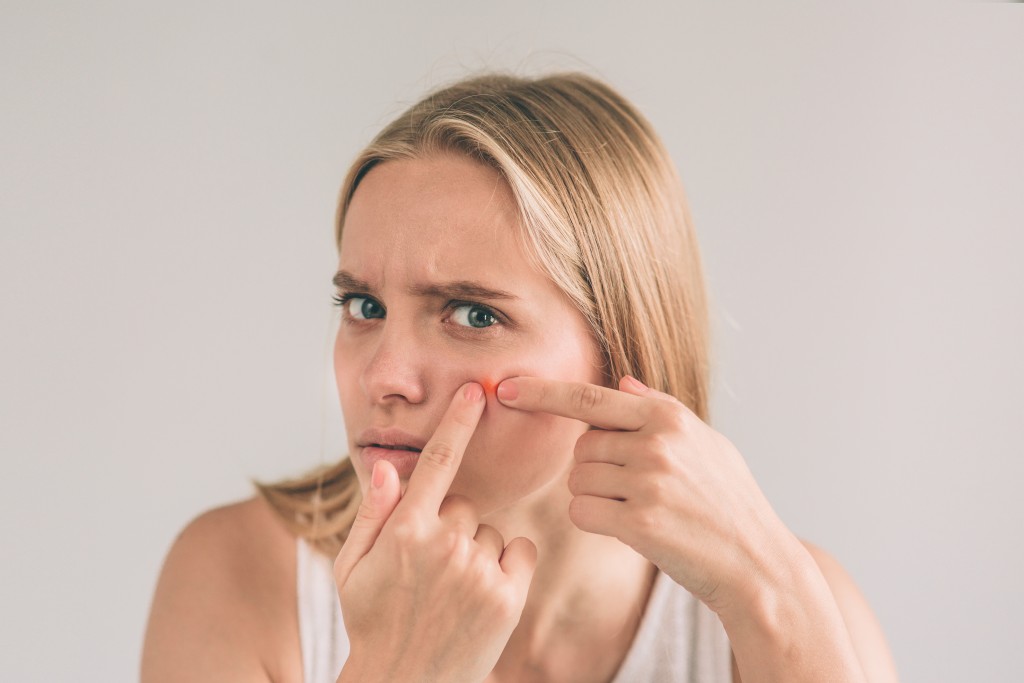- Seek medical advice, consider prescription medications to effectively treat severe acne, and discuss the pros and cons of each.
- Establish a consistent facial hygiene routine to keep skin looking healthy, reduce inflammation, and prevent scarring.
- Utilize non-comedogenic cosmetics and makeup products to reduce the severity of breakouts and avoid touching or picking at the skin.
- Change sheets and pillowcases regularly to prevent bacteria from building up on the skin, which can lead to further breakouts.
Severe acne can be a difficult and distressing condition to deal with, but there are steps you can take to manage it. Acne is caused by the overproduction of oil in the skin, which leads to clogged pores and inflammation. It’s important to understand that severe acne isn’t just a cosmetic issue; it also affects self-esteem and mental health.
Fortunately, there are ways to address this problem effectively. You can significantly reduce your symptoms or clear up your skin with the right combination of treatments and lifestyle changes. This article will provide an overview of treating severe acne so you can start feeling more confident about yourself again.
See your doctor
Seeing a doctor for severe acne is an integral part of treatment. Once you have exhausted treatments such as cleansers and topical creams, it is time to seek medical advice and consider prescription medication. It is also beneficial to talk to your doctor about Accutane alternatives.
Numerous other powerful medications, including antibiotics, retinoids, and corticosteroids, can effectively fight cystic and nodular acne. A relatively mild form of Accutane can also be taken with fewer side effects. However, it’s important to note that stronger medications come with increased risk.
Improve your facial hygiene.
Here are some tips on improving your facial hygiene:
Cleanse and moisturize your skin twice daily.

Taking care of your skin is essential when dealing with severe acne. A consistent and effective cleansing and moisturizing routine twice daily can make all the difference.
Regularly cleansing and moisturizing help keep the skin healthy by removing dirt and oil build-up and locking in moisture to prevent skin irritation or breakouts that can lead to scarring.
Taking the extra time to focus on keeping your skin cleansed and hydrated can also help reduce inflammation associated with severe acne, leading to clearer, more radiant-looking skin that lasts.
Avoid touching or picking at your face.
Properly avoiding touching or picking at your face when dealing with severe acne is paramount to treating the issue sightly and healthily. Habitual touching and picking of pimples and blemishes can lead to infection, skin surface damage, and scarring. Touching only aggravates the condition by intensifying inflammation and spreading bacteria from your fingertips to other parts of your face.
In contrast, reducing touching by resisting the urge may encourage natural healing processes and reduce any further damage that could be caused. Ensuring clean hands when washing your face and avoiding unnecessary roughness or scrubbing that can further irritate acne-prone skin is also essential.
Use non-comedogenic products

When suffering from severe acne, using the right cosmetics and makeup products is essential. Non-comedogenic cosmetics are designed to be non-pore clogging and are typically oil-free, which can help reduce the severity of acne breakouts. It’s necessary to read labels before buying a product.
Not all products that claim to be non-comedogenic may be beneficial for those with sensitive skin and severe acne. In addition, it’s also important to remember that even if a product is labeled as non-comedogenic, it can still lead to clogged pores and breakouts if products aren’t applied properly or are not suited for your skin type. Opting for natural alternatives, such as mineral powders or plant-based oils, can also benefit those with severe acne.
Change sheets and pillowcases frequently
Changing sheets and pillowcases frequently are necessary to effectively treat severe acne. The accumulated sweat, body oils, and natural skin cells that build up on these surfaces can worsen existing blemishes and create an environment ripe for new breakouts. When changing bedding, wash the fabrics in warm water with mild detergent to be sure all bacteria are killed, then use a top sheet, so sheets do not touch the skin directly.
This can protect further from further irritation or getting a secondary infection from bacteria on the sheets and pillowcases. Clean bedding should be changed at least once a week for those with severe acne; doing so helps keep the skin clear and prevent pimples from becoming increasingly inflamed or itchy.
Refrain from popping pimples or squeezing blackheads.
Dealing with severe acne can be difficult, and it is essential to take care when attempting to treat the issue. Refraining from popping pimples or squeezing blackheads is central to maintaining healthy skin. Not only does this help reduce the chances of causing scarring, but it also prevents the spread of bacteria and infection, which can make breakouts worse.
Popping any spot also increases skin inflammation, which can result in redness at the sight and further inflame the surrounding areas. Taking care not to exacerbate acne sometimes means simply waiting for it to pass rather than applying an approach that could cause even more problems down the road.
These are just some of the tips on how to treat severe acne. It is important to remember that everyone responds differently when it comes to treating acne, and what works for one person may not work for another.

